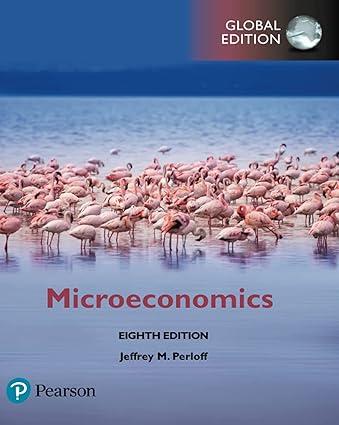If a firm's long-run average cost function is (A C(q)=2 / q), what happens to average cost
Question:
If a firm's long-run average cost function is \(A C(q)=2 / q\), what happens to average cost as \(q\) increases? What is this relationship between average cost and returns to scale called? If the firm also learns by doing, what happens to average cost as \(q\) increases? How would learning by doing be reflected in the average cost function?
Fantastic news! We've Found the answer you've been seeking!
Step by Step Answer:
Related Book For 

Question Posted:





